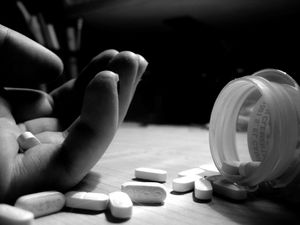Whenever a teenager appears to be upset or in a bad mood, it is common to think that they are struggling with some insignificant problem rather than teenage depression. Bad grades, first break up, college rejection – all seem like temporary problems that will soon be forgotten and will not affect life in a long run. But even such insignificant problems in teen’s life can result in devastating consequences.
Causes of Depression in Teenagers
Depression is a complicated topic, and there are a variety of issues that might cause it, including biological chemistry, changes in the body’s balance of hormones, inherited traits, or early childhood trauma.
However, even if the teenager was born healthy, there are a variety of external risks that can trigger depression, including having issues that negatively impact self-esteem, such as obesity, peer or family problems, long-term bullying or academic problems.
Mental health statistics for Depressed Teenagers
Consider this: the second-leading cause of death for teens between age 12 and 18 is suicide.
It is common to feel overwhelmed to the point where you feel hopeless. While many adults have learned to cope with stress, teens often break under the pressure. Nearly 18 percent, which is about 1 in 5 students between ninth and 12th grade, had thought about attempting suicide, according to the Center for Disease Control and Prevention.
However, just thinking is not as bad as actually making a detailed plan how to kill yourself, which 14.6 percent of students nationwide had done.
To be diagnosed with depression, a person must suffer from a depressed mood and find less pleasure in things which they used to enjoy. Additionally, they must experience changes in appetite, loss of sleep, energy, and concentration. Consequently, with little or no enthusiasm and motivation, depressed teens usually have a smaller social circle and take advantage of fewer career and education opportunities. Similarly, depressed teens are more likely to have trouble at school and in jobs, and to struggle with relationships.
From Teen Depression To Substance Use
30 percent of teens with depression also develop a substance abuse problem.
 In the study published in Drug and Alcohol Dependence, the University of Southern California researchers used an assessment of 476 teenagers to find the connection between adolescent depression and adolescent substance abuse. All of the participants self-reported their involvement in drug, alcohol and/or tobacco use as well as their experiences with symptoms of depression and their typical reactions to stressful situations.
In the study published in Drug and Alcohol Dependence, the University of Southern California researchers used an assessment of 476 teenagers to find the connection between adolescent depression and adolescent substance abuse. All of the participants self-reported their involvement in drug, alcohol and/or tobacco use as well as their experiences with symptoms of depression and their typical reactions to stressful situations.
Using this observation, researchers confirmed the link between experiencing depression symptoms during adolescence and increased odds of using a range of substances, including alcohol, marijuana, tobacco and opioid pain relievers.
The Difference Between Teenage Depression and Adult Depression
Depression in teens can look very different from depression in adults.
Unlike adults, teens may not admit feeling depressed. Rather, they may appear hostile, easily frustrated, prone to angry outbursts, and have physical complaints or behavior changes. They are also more likely to be sensitive to criticism – depressed teens are plagued by feelings of worthlessness, making themselves extremely vulnerable to criticism, rejectio, and failure. Parents should be cautious if their child’s grades fall or if their child engages in a risky behavior such as consumption of drugs or alcohol.
Depression And Suicidal Thoughts Can Be Treated
Another interesting fact: nearly one-fourth of all teens will experience depression before adulthood. It should not come as a surprise that depression is the primary cause of suicide. That is why depression always needs to be taken seriously and treated immediately before it results in a terrible outcome.
If you are concerned that your child may be depressed, take him or her to a mental health professional. If they are also abusing substances, you should strongly consider looking into an adolescent drug detox program with experienced professionals. There, mental therapy and medications can be helpful in treating childhood depression and the ensuing drug abuse.
